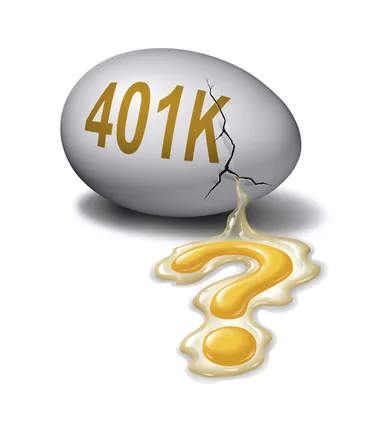
If you contribute to a 401(k) plan at work, you'll reduce your income tax payments, but not your FICA payments. Your employer won't have to pay FICA tax on its contribution, however. Understanding the basics about FICA tax on 401(k) contributions will help you make plans regarding your retirement planning.
Video of the Day
Video of the Day
What Is a 401(k) Match?
Depending on what your employer offers, you might get "free money" in the form of a 401(k) contribution. For example, let's say your employer offers a 401(k) match of 50 percent of your contribution up to 6 percent of your salary.
That means that if you make $100,000 per year and contribute 6 percent of your salary ($6,000) to your 401(k), your employer will give you 50 percent of that amount ($3,000). This is the most common plan offered by large employers today, explains investment management firm, T. Row Price.
Read More: What if I Made a Mistake on my Taxes?
A Review of FICA Taxes
The Federal Insurance Contributions Act deducts money from your paycheck to help fund Social Security and Medicare benefits, which you will receive after you retire.
When you earn income as an employee, you pay 7.65 percent of your wages or salary (6.2 percent in 2021 for your Social Security contribution on income up to $142,800, and 1.45 percent for your Medicare contribution on your first $200,000 in income, then 0.90 percent after that). Your employer matches these amounts and pays this money to the federal government, along with the 7.65 percent it withholds from your paycheck.
You also pay federal and state income tax (depending on what state you live in) at a rate that's determined by what you and your employer determine is your rate, based on what you fill out on your W-4 form. If you're self-employed, you get no employer contribution and must pay 15.3 percent FICA, but can deduct one-half of that on your personal tax return.
Read More: Independent Contractor Tax Deductions
Employee FICA Taxes on 401(k)
If you contribute $6,000 to your 401(k), you will not pay any federal income tax on this money that you have earned but contributed to your 401(k). You will, however, still pay your FICA taxes on this $6,000.
Employer FICA Taxes on 401(k)
If you contribute $6,000 to your 401(k), your employer will not pay any FICA taxes on this amount of the $6,000 it paid you. This is one way in which employers benefit from providing employees with a 401(k).
Why The Switch to 50 Percent?
For decades, employers offered a dollar-for-dollar match on employee 401(k) contributions, up to 3 percent. By switching to a 50 percent match up to 6 percent, it might seem like the same offer, but it's not, really. Many employees can't afford to contribute 6 percent of their pay to a 401(k), so the employer ends up paying less for this benefit, but still gets the opportunity to present itself as offering a nice employee benefit. If employees do contribute the full 6 percent, the employer pays less in FICA taxes.